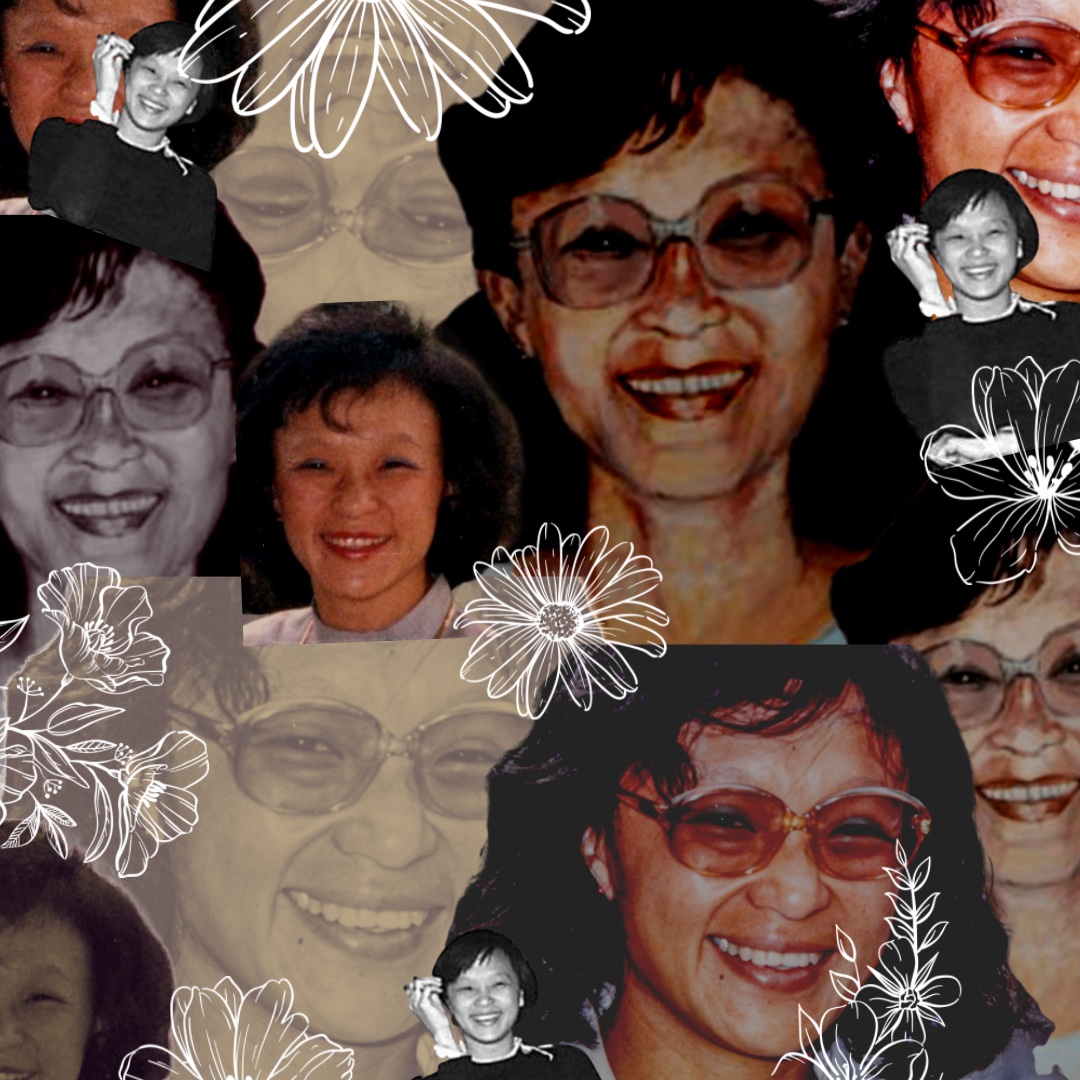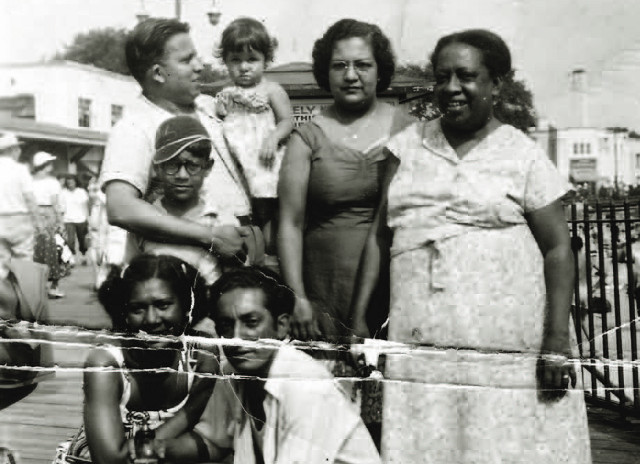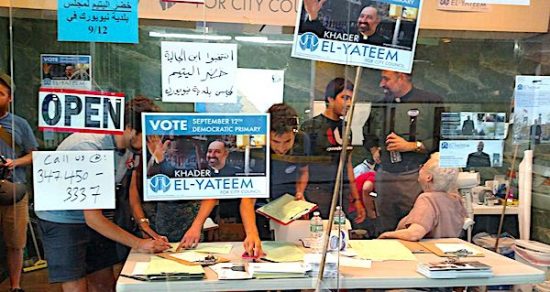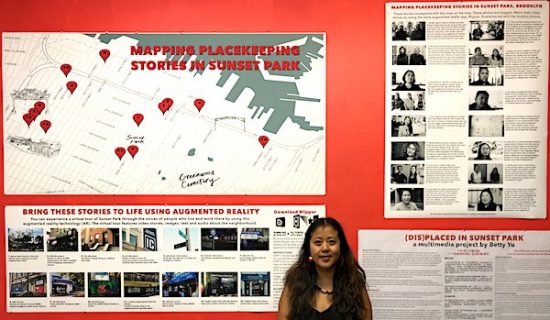Assassinated for her activism during the Guatemalan Civil War, Mack Chang’s research drew attention to the government’s abuses against Indigenous communities

May 18, 2022
For Black and Asian Feminist Solidarities, Jaimee A. Swift centers the lives, leadership, and legacies of historical Black and Asian women and gender-expansive activists from transnational and intersectional perspectives. This piece examines the resistance of Myrna Mack Chang, a Guatemalan anthropologist, journalist, and human rights defender.
When I first learned about the activism of Guatemalan anthropologist and human rights defender Myrna Mack Chang (1949–1990), I felt excitement but also anger and sadness. As a Black feminist committed to the recovery and restitution of Black women and gender-expansive people’s political legacies, I’m familiar with these very sentiments. I’ve felt them when I’ve come across historical information about Black women, women of color, and gender-expansive communities of color I had not learned about.
The sense of excitement arises out of learning more about the lives, leadership, and legacies of those who paved the way for contemporary and future movement building.
There is anger because archival power—“the power to decide what is and what is not a serious object of research, and therefore, of mention or thought,” as archivists J. J. Ghaddar and Michelle Caswell put it—has violently, and often successfully, attempted to systematically erase the lives and contributions of figures like Myrna Mack Chang. There is sadness because countless Black women, women of color, and gender-expansive people of color remain nameless and faceless in the archives, as Saidiya Hartman interrogates, due in large part to state and patriarchal violence and linguistic imperialism.
Myrna Mack Chang was a Guatemalan anthropologist and human rights defender who was assassinated in 1990 for her research, documentation, and outspokenness against the Guatemalan government for its human rights abuses, violent treatment, and displacement of the Indigenous Ixil and K’iche’ Maya people during the country’s civil war (1960–1996). As is the case with Ana Marie “Chai” Lemita-Evangelista (?–2021) in the Philippines, Marielle Franco (1979–2018) in Brazil, Emilsen Manyoma (1985–2017) in Colombia, and other women human rights defenders who have been murdered for their activism, far too few people know Chang’s name, organizing, or plight.
This piece attempts to center her leadership and legacy as a radical who dedicated her life to fighting injustices.
Early Life and Education of Myrna Mack Chang
Myrna Elizabeth Mack Chang was born on October 24, 1949, in Barrio San Nicolás, Retalhuleu, a neighborhood and city located in southwestern Guatemala. The daughter of Yam Jo Mack Choy and Zoila Esperanza Chang Lau, who were Chinese, Mack Chang and her five siblings—Marco Antonio, Helen, Freddy, Vivian, and Ronnie—had a relatively conservative and upper-class upbringing, as their parents owned a store in a rural area where predominantly poor Maya communities dwelled. Mack Chang was born during the Ten Years of Spring (1944–1954), a democratic decade following the Guatemalan Revolution, which was catalyzed by an uprising to overthrow tyrant and dictator Jorge Ubico Castañeda, the twenty-first president of Guatemala.
Focused on her education, Mack Chang graduated from Colegio Monte María as a primary education teacher in 1967. In 1971, she graduated from the School of Social Service of the Guatemalan Institute of Social Security, where she obtained a degree in social work. In 1973, Mack Chang’s daughter, Lucrecia Hernández Mack, was born.
Mack Chang studied anthropology at the University of Manchester and later at the University of Durham, both located in England. Upon completing her thesis at the University of Durham, titled “From grassroots organization to mass mobilization in Nicaragua: The case of Estelí,” Mack Chang returned to Guatemala in 1982, only to see her country embroiled in political turmoil. Here, it is important to contextualize Mack Chang’s educational pathways alongside the political tensions in Guatemala at the time, as this is where her activism and leadership emerged.
In 1954, the U.S. CIA orchestrated a military invasion of Guatemala that led to the exile of democratically elected President Jacobo Árbenz Guzmán, a lead figure of the Ten Years of Spring. According to “Ten Years of Spring: Citizen Participation in Guatemala’s Land Reform Law,” it was during the Ten Years of Spring that “campesino workers, who mostly consisted of indigenous populations, saw considerable improvements to their living conditions.” However, following the 1954 invasion, Guzmán was forcibly replaced by the U.S.-backed, military junta spearheaded by Carlos Castillo Armas, who was later declared president.
Armas’s administration was characterized by corruption, debt, torture, authoritarian rule, and the attempted reversal of an agrarian reform law that redistributed land from landowners to peasants. Armas was assassinated in 1957. In 1960, Guatemala’s thirty-six-year-long civil war began, as leftist groups arose to resist the government’s repression. More than two hundred thousand people died in the civil war, which ended in 1996. Out of those killed, roughly 83 percent were Mayan. A 1999 report written by the Commission for Historical Clarification, with support from the United Nations, detailed the human rights violations of this period.
So when Mack Chang returned to Guatemala in 1982, during one of the bloodiest times of the war, she saw firsthand the atrocities committed by the Guatemalan government.
And she decided to do something about it.
Defending the Human Rights of Indigenous Maya
The Guatemalan Civil War, particularly during the 1970s and 1980s, marked a zenith of political repression during which the military government enacted widespread violence, terror, and surveillance against the Guatemalan National Revolutionary Unity (URNG), “a leftist guerrilla movement in opposition to the Guatemalan government.” Employing a punitive and “by any means necessary” approach to eradicating its enemies, the Guatemalan government was indiscriminate in targeting, abducting, and massacring leftist opposition leaders of the URNG and also civilians who were not directly involved in guerrilla warfare, particularly among the Indigenous population. The survivors among the Indigenous communities were forced to flee and take refuge in the mountains and other areas.
In “The Case of Myrna Mack Chang: Overcoming Institutional Impunity in Guatemala,” legal scholars David Baluarte and Erin Chlopak offer critical and comprehensive insight into Mack Chang’s activism as well as the corruption surrounding the investigation into her assassination. In the 1980s, Mack Chang worked as a journalist and editor at Inforpress Centroamericana, a news agency where she conducted investigative reporting and analysis on the political unrest in Guatemala. Mack Chang’s perseverance as a journalist during the civil war was indicative of her dedication to justice and truth-telling. According to historian Cindy Forester, “most honest reporters [during that time] were dead or in exile.” Along with colleagues from Inforpress Centroamericana, Mack Chang founded the Association for the Advancement of Social Sciences in Guatemala (AVANSCO) in 1986. AVANSCO was a social science center with a mission to empower research on the social, cultural, and political impact of the Guatemalan Civil War and human rights abuses committed by the military government against the marginalized and internally displaced Indigenous Maya communities.
A year prior to the founding of AVANSCO, in 1985, the Guatemalan military government had purportedly transitioned to a civilian government with the election of a civilian president; however, repression abounded. Through her research with AVANSCO, Mack Chang demanded that the civilian government recognize the disparities faced by Indigenous Maya communities. And for her advocacy, she unfortunately became a target and was labeled an “internal enemy.”
Between 1987 and 1989, Mack Chang and her colleagues carried out ethnographic fieldwork, mainly in the Ixil and Alta Verapaz regions of the country. She collected testimonies of survivors among the Indigenous Maya and published the book Institutional Policy Toward the Internally Displaced Persons in Guatemala in 1990, which drew international attention to the military’s role in escalating violence toward Indigenous Maya peoples and exacerbating poverty among those same communities.
Mack Chang then began working on a second publication based on her research, titled “Where is the future?” Sadly on September 11, 1990, while she was leaving AVANSCO headquarters for her home, she was attacked and stabbed twenty-seven times.
Advancing Myrna Mack Chang’s Legacy
For decades, Myrna Mack Chang’s sister Helen Mack Chang fought valiantly to not only ensure her sister’s activism is forever etched in history, but that her family could seek justice after her murder. With a team of lawyers, Helen brought national and international attention to her sister’s case; however, the Guatemalan government did everything it could to impede and halt judicial efforts from the onset of the investigation of Myrna’s murder. Baluarte and Chlopak noted that “no fingerprints were taken from the crime scene; investigators failed to obtain blood samples as well as a complete set of photographs of her wounds; and although fingernail samples were obtained, they were discarded before a laboratory technician could analyze them. In addition, investigators never examined the clothing Myrna was wearing when she was killed.”
On September 26, 1990, fifteen days after the assassination of Myrna Mack Chang, detectives generated a sixty-page report determining that her death was politically motivated. The report named Noel de Jesús Beteta Alvárez as one of two suspects in Myrna’s murder. Alvárez was identified as an agent of the Estado Mayor Presidencial, which had direct ties to the president and was “widely known to carry out . . . covert directives.” However, the police truncated the report and submitted a thirteen-page version to the courts that omitted the fact that Myrna was politically targeted. One of the detectives who originally authored the sixty-page report was also assassinated. Myrna’s case was seen by twelve different judges before a conviction was established.
On February 12, 1993, Noel de Jesús Beteta Alvárez was convicted and sentenced to twenty-five years in prison for the murder of Myrna Mack Chang. Although three other military officials were indicted in 2002, only one was convicted and the two other officials were acquitted. The officer who was convicted—Juan Valencia Osorio—was sentenced to thirty years in prison in 2004; however, he managed to flee from authorities.
Enduring countless death threats, Helen Mack Chang remained relentless in her quest for justice for her sister. On February 21, 2003, thirteen years after her initial petition, Helen won her case at the Inter-American Court of Human Rights. In 2004, in accordance with the ruling instituted by the Inter-American Court, the Guatemalan government apologized and publicly admitted to its participation in the assassination of Myrna. According to the nonprofit organization Right Livelihood, Myrna Mack Chang’s case was the first legal case in Guatemala that “proved the direct participation of state agents in the violation of human rights and the use of the country’s entire apparatus to prevent accountability for its members.”
In 1993, Helen founded the Myrna Mack Chang Foundation in honor of her sister. With a mission of “promoting the fight against impunity, the construction of the rule of law in Guatemala, and the consolidation of peace and democracy,” the foundation promotes peace and the defense of human rights.



